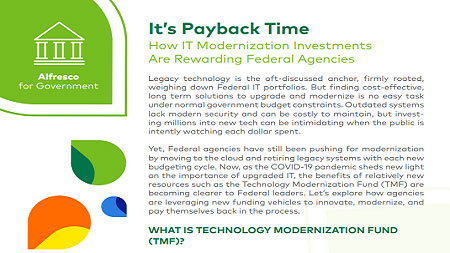
Three members of the Cyberspace Solarium Commission – Rep. Jim Langevin, D-R.I., Sen. Angus King, I-Maine, and Rep. Mike Gallagher, R-Wis. – introduced bicameral legislation to appropriate $28 billion in new Federal aid and establish programs to enhance state and local government modernization and cybersecurity.
The State and Local IT Modernization and Cybersecurity Act, introduced on August 13, pulls from recommendations in the commission’s white paper on cybersecurity lessons learned from the pandemic to help state and local governments migrate legacy IT onto more modern and secure platforms. The bill would establish two new programs to fund state and local modernization efforts.
The Public Health Emergency IT Grant Program would address the immediate IT modernization needs highlighted by the COVID-19 pandemic, such as improving remote work and ensuring essential services. The program would initially receive $1 billion for state and local grants.

“COVID-19 has made it apparent how much legacy IT is affecting state and local governments operationally,” Rep. Langevin said of the legislation. “The State and Local IT Modernization and Cybersecurity Act will dramatically improve e-government services, protect workers, and significantly enhance security,” he added.
The Modernizing IT Program, set to receive $25 billion, would grant funds to help state and local governments migrate legacy systems to improve the digital delivery of government services. Grantees would be required to submit a State IT Modernization plan, match five percent of funds received, and allocate 40 percent of funding toward local subgrants to receive a grant.
The remaining appropriations – $400 million each fiscal year between 2021 and 2025 – would be invested in a State and Local Cybersecurity Grant Program to upgrade networks against cyberthreats. The Cybersecurity and Infrastructure Security Agency would be tasked with approving the funds and establishing a State and Local Cybersecurity Resiliency Committee to improve local government cybersecurity.
“America’s cybersecurity strategy cannot occur at only the Federal level – if we are to take the necessary steps to protect our people and our data, each layer of our government must be prepared for cyber threats,” Sen. King explained. “This legislation will help our states and localities update their systems, which will improve their security and provide the added benefit of helping state and local governments operate more efficiently in the digital age.”
House co-sponsors include Reps. Cedric Richmond, D-La., Will Hurd, R-Texas, Dutch Ruppersberger, D-Md., Michael McCaul, R-Texas, Max Rose, D-N.Y., and Don Bacon, R-Neb.
